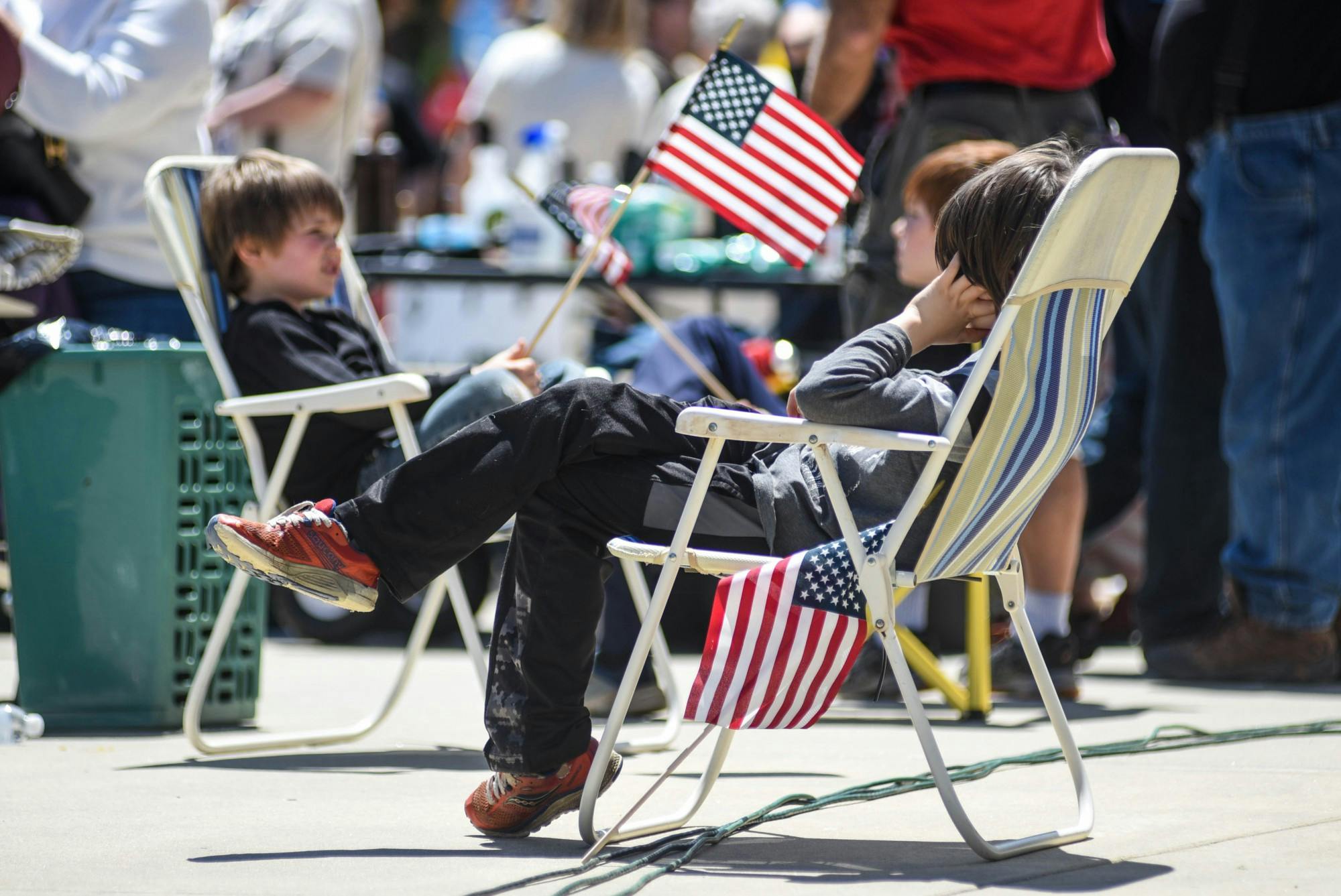At first, I didn't think Trump's presidency would affect me. I didn't care who was running our country. I was 16, I couldn't vote personally and I was under the supervision of my parents' signature for most things.
Four years dragged, but somehow flashed by and the year is 2020; there's a presidential election in November.
On the ballot, Trump is listed as the Republican nominee, again, and Joe Biden, the man who served side by side with Barack Obama for eight years, is listed as the Democratic nominee.
Me? I'm 20 now. Life? Still working it out, but I'm in my junior year at Michigan State University, living on my own and completely reversed from the confines my parents raised me in.
I wish I could tell you who's going to be elected into office. I wish I could just know, honestly, right now. But as of now, it's a toss up. One poll says Trump, another says Biden. News outlets weave in and out of giving me an idea and the only thing I know for sure is that this election, Trump vs. Biden, has driven a polarizing wedge between my family and me.
My mom texted me last night, "This nation is going to socialism."
In my head, I thought, "OK and?"
Her next text made me chuckle, "We need Trump to win! Biden will make this all worse."
If anyone is familiar with the sarcastic usage of the red heart emoji that Generation Z (Gen Z) has turned into a trend, you should know it came into play in my reply. I'm not one to argue with people online when our opinions differ, as everyone is entitled to their own, but with family it can be fun to poke the bear sometimes.
I'm a Democrat, a liberal, progressive, left-leaning, blue, whatever you want to call it. You all know Bernie Sanders, I assume? Yeah, exactly.
My parents? The opposite. Republican, conservatives, right-leaning, red, you get the gist.
I know I'm not the only one in this sticky situation.
Marketing senior Lauren Sakosky considers herself a very stark left-leaning person. While it wasn't always that way, as her parents too raised her in a right-leaning household, she found herself trekking through high school and developing her own thought patterns about societal topics.
She said she had always questioned her parents beliefs, seeing their solutions as 'this is logical' more so than 'this is right,' though growing up in Oxford, Michigan, another small and predominately white town, she remained quiet about it.
However, once Sakosky came to MSU for college, she began to have more diverse experiences, and the importance of speaking out grew three times its size in her heart (classic "Grinch," but valid). She too doesn't like getting into arguments with people, but if she truly believes in a cause or a statement, she's going to let her support be known.
"I started slowly integrating my new beliefs into my conversations with my parents, but they were always met with something along the lines of 'you don't have enough experience to understand this issue,'" she said. "My dad did work in Detroit for awhile, so that was his crutch ... but it was frustrating to me."
While her parents do have their college degrees, she said that they weren't from a bigger university like MSU and that they didn't get the typical campus life she did.
"I'm smart to them, I teach them things I learn in college, but the second that it gets political I get hit with 'you're not old enough to understand,' which is when the resentment started," she said. "It made me, my opinions and my growth feel disrespected. It's frustrating when people think only their opinion is right, especially when you know (it's not)."
Support student media!
Please consider donating to The State News and help fund the future of journalism.
Political science, pre-law and journalism freshman Miranda Dunlap also considers herself left-leaning, a part of the Democratic party. While her mom and her share that same identification, her dad is a Michigan State police officer and all the more right-leaning. She can tell her dad sees every side of every issue, though she knows he blindly follows Trump and being a police officer only sways him farther that way.
"I remember, specifically with the Black Lives Matter (BLM) protests happening, we got into a very large argument," she said. "He sees BLM as a threat to him and his job, even though ... it's not about him — it's about the lives of so many (Black people). He'll say things like 'well, Blue Lives Matter,' and I'm like, 'Dad, that's your job; you're not blue, you're white.'"
Both Dunlap and Sakosky agree that they try to avoid the topic of politics with their parents because it never gets them anywhere. They feel like their parents never consider their words.
"It sucks because he's my dad and I love him, but I don't understand how (he) can't see the reality of how wrong things really are," Dunlap said.
In high school, Dunlap did a small-scale study on the political identifications and ideologies of her fellow students vs. their parents. Her results found that, more times than not, Republican parents also have Republican kids or Democratic kids, while Democratic parents always only have Democratic kids.
Strange, right?
According to an article by The Atlantic and a study in the British Journal of Political Science, it was found that parents who insist that their children adopt their same political views are inadvertently influencing them to abandon those views once they become adults.
"Children who come from homes where politics are a frequent topic of discussion are more likely to talk about politics once they leave home, exposing them to new viewpoints — which they then adopt with surprising frequency," Te-Erika Patterson said in The Atlantic article. "The study ... also shows that these changes are especially likely to happen during the college years."
When Trump was first elected into office, I was in high school, as were you, probably. This will be the first presidential election that I can vote in, that all of the Spartan student body can vote in, actually.
Don't let anyone take this opportunity away from you. Make your voice heard.
Vote as if your skin is not white. As if your parents need medical care. As if your spouse is an immigrant. As if your land is on fire. As if your child is transgender. As if your house is flooded. As if your sister is a victim of gun violence. As if your brother is gay. As if your water is unsafe.
Vote as if your life depends on it.
Privilege has no place in an election, but empathy does.
Fight for change.
Discussion
Share and discuss “Column: Politics polarizing family dynamics, MSU students weigh in” on social media.








